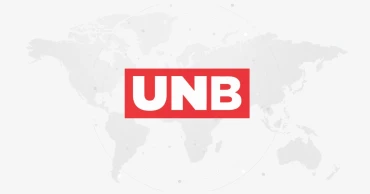US-led invasion of Iraq
Polls open in Iraq's general elections amid tight security
Iraq closed its airspace and land border crossings on Sunday as voters headed to the polls to elect a parliament that many hope will deliver much needed reforms after decades of conflict and mismanagement.
The vote was brought forward by six months in response to a popular uprising in the capital Baghdad and southern provinces in late 2019, when tens of thousands of people took to the streets to protest endemic corruption, poor services and rising unemployment. They were met with deadly force by security forces firing live ammunition and tear gas. More than 600 people were killed and thousands injured within just a few months.
Although authorities gave in and called the early elections, the death toll and the heavy-handed crackdown prompted many young activists and demonstrators who took part in the protests to later call for a boycott of the polls.
A series of kidnappings and targeted assassinations that killed more than 35 people, has further discouraged many from taking part.
Read: Biden says US combat mission in Iraq to conclude by year end
A total of 3,449 candidates are vying for 329 seats in the parliamentary elections, which will be the sixth held since the fall of Saddam Hussein after the US-led invasion of Iraq in 2003.
More than 250,000 security personnel across the country were tasked with protecting the vote. Army troops, police and anti-terrorism forces fanned out and deployed outside polling stations, some of which were ringed by barbed wire.
“Get out and vote, and change your reality for the sake of Iraq and your future,” said Iraqi Prime Minister Mustafa al-Kadhimi, after he cast his ballot at a school in Baghdad's heavily fortified Green Zone, home to foreign embassies and government offices.
“To those who hesitate, put your trust in God and go and choose those you deem appropriate,” he added, reflecting concerns over a low turnout. “This is our opportunity.”
The 2018 elections saw just 44% of eligible voters casting ballots, a record low. The results were widely contested. There are concerns of a similar or even lower turnout this time.
Iraq’s top Shiite cleric and a widely respected authority, Grand Ayatollah Ali al-Sistani, has called for a large turnout, saying that voting remains the best way for Iraqis to take part in shaping their country’s future.
The election is the first since the fall of Saddam to proceed without a curfew in place, reflecting the significantly improved security situation in the country following the defeat of the Islamic State group in 2017. Previous votes were marred by fighting and deadly bomb attacks that have plagued the country for decades.
As a security precaution, Iraq has closed its airspace and scrambled its air force from Saturday night until early Monday morning.
In another first, Sunday's election is taking place under a new election law that divides Iraq into smaller constituencies — another demand of the activists who took part in the 2019 protests — and allows for more independent candidates.
Read:Death toll rises to 92 in blaze at coronavirus ward in Iraq
A U.N. Security Council resolution adopted earlier this year authorized an expanded team to monitor the elections. There will be up to 600 international observers in place, including 150 from the United Nations.
Iraq is also for the first time introducing biometric cards for voters. To prevent abuse of electronic voter cards, they will be disabled for 72 hours after each person votes, to avoid double voting.
But despite all these measures, claims of vote buying, intimidation and manipulation have persisted.
The head of Iraq’s electoral commission has said that initial election results will be announced within 24 hours.
4 years ago

